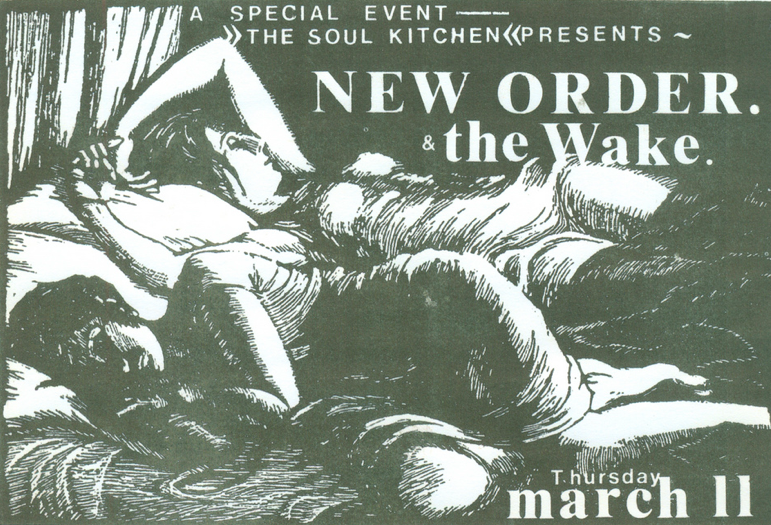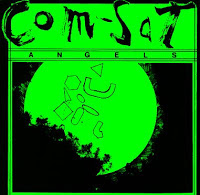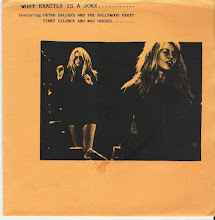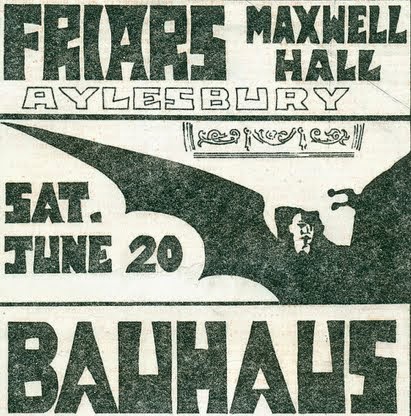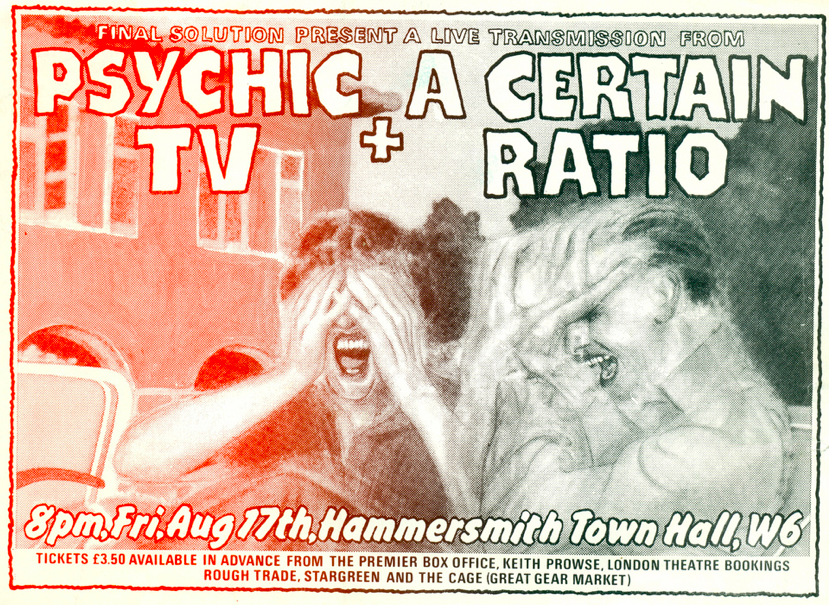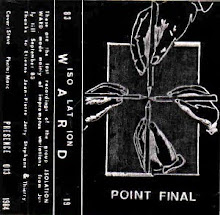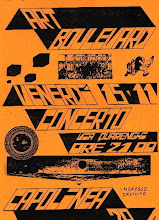
giovedì 27 maggio 2010
English as a second language

lunedì 24 maggio 2010
dream florence dream

domenica 16 maggio 2010
Grandsons of dungeon

lunedì 3 maggio 2010
The friend I had was a passionate friend...

..." Soon or later it had to happen. The painfully predictable way in which rock scenarios repeat themselves certainly belies the once optimistic image of a dangerous, freewheeling medium constantly expanding like some parallel universe journeying to dimensions never seen or heard before. A thriving primal musical milieu began to flower on Mathew Street, Liverpool, circa 1977. From the ego shattered breakdown of the portentously named Crucial Three, a band that never made it out of sitting room let alone the garage, crawled Ian "Mac" McCulloch (Echo And The Bunnymen), Pete Wylie (Wah! Heat) and Julian Cope (Teardrop Explodes). The bands' early singles on Zoo and Inevitable were acclaimed and it dawned that here was another much needed opportunity to write on and help manufacture a phenomenon - The Liverpool Scene, The New Merseybeat, and so the labels linger on. Once the buzz had filtered onto the discreet pages of the Sunday glossies, there came a need for the final ingredient: a ritual sacrifice. The Teardrops released their debut album "Kilimanjaro", which embraced pop in favour of their formative experimentation. It also included their past singles and, although excellent in parts, veered towards the bland by virtue of its unifomiity. It was a golden opportunity for the big put down. The knives were drawn and suddenly it's et tu, buddy. Couple this with Julian Cope's propensity to unashamedly air the band's internal and external rivalries like the dirty washing from the northwest's other soap box fantasy, "Coronation Street," and you find an incestuously, inward looking menage a trois that looks like imploding under the weight of its own negativities. While the critical backlash aimed at the Teardrops' debut album, flawed as it is, seems more than a little unfair, the way the Teadrops have become the eye of a bitchy whirlwind of jealousies, slander and cynical asides is hardly surprising when you realise that the band is fuelled on in-fighting and hatred. "Yes, I must say I don't like Dave. He gets a pretty dubious character sometimes." This is Julian Cope talking about his keyboard player and producer Dave Balfe, a man who frequently works with great effect with the other great Zoo controller Bill Drummond under the collective title of The Chameleons. "He just plays a good role in the band that's all," he continues, "but we often fight, and I mean physically. I usually win because he's a bit of a wiinp ... not that I'm a fighting person though." Speaking as if he'd just snorted an entire week's supply of speed, the Teardrops' mainman continued his explanation on polemics as a means to creativity in the romantic setting of the Ali Kebab House somewhere near their north London rehearsal studios. "Dave is just one of the most extreme characters I've ever met. Sometimes he gets me so knotted up inside .. but then again that's good because it keeps me pushing; you know, right there." Hardly the kind of thing you expect from a man who writes predominantly love songs, and very good ones too, and confesses to a long-running affair with the metaphysical poets like Donne and Marvell. Turning, momentarily from aggression to what he calls the "alternative society" of Liverpool, he had this to say: "It's become the hip thing to deny that there's a Liverpool scene but there is. "It hasn't been exaggerated by the press in fact. It is a very cliquey place, very insular. We all meet in the same places and despise each other jokingly. One thing though, there's certainly not a Liverpool sound." , As if to amplify this point he goes on to point cut that he considers the Bunnymen to have become too dirge like - "they've lost their original fragility" and Wah! Heat are accused of being "too heavy and ponderous." Much of the emotion on the album revolves, not unnaturally, around girls, apart from occasional tracks like "Went Crazy" and "Books". The latter is the only song without the lyric printed on the inner sleeve and it's not without significance that it was written with former partner, Mac McCulloch. Like their friends/enemies (you choose) the Bunnymen, they received more than their share of flak for signing with a big label rather than an independent. Julian's answer to those "rootsier than thou" critics is typically uncompromising and pragmatic. "Oh that's all shit . , . I don't think there's anything called selling out these days. We recorded the album first and then took it to Phonogram. There was never any doubt I always wanted us to go with a big label." By throwing in their lot with Phonogram they will also have the financial backing to make their current Daktari tour more than just a slog round the halls promoting the album. Eschewing camo chic - "We're heavily inyo army gear, I've got 17 pairs of army pants all hanging up and we've even got a jeep" in favour of nouveau naturalism. "Our backdrop is like a huge zebraskin" the band will also be using the unusually talented road crew that helped make the Bunnymen tour so visually powerful. As the consciously Love inspired horn section is central to the album's ambience there will be two trumpet players on stage with the band. It seems a crucial tour in many ways. The white light seems to be shining on them harder than any other time in their history. After raising so many hopes, they've committed the fatal sin of disappointing the self-righteous upholders of street credibility, not to mention one particular rock journalist currently conducting a personal campaign of character assassination in their home town. You might like to have known what the other members of the band thought about this tale of back stabbing and tribal warfare, but according to the garrulous Julian there was no point asking them. "I usually do the interviews because I’m the only one with anything to say really. Like Alan just spends most of his time thinking, and Gary (the band's drummer) never says anything. "I can usually speak for them better. Dave would just start pissing you off ... it sounds like a really horrible band, doesn't it?" Ian Pye
Reproduced from Melody Maker, 18th October 1980.
Listen to The Teardrop Explodes playing live at Eric's in 1979


